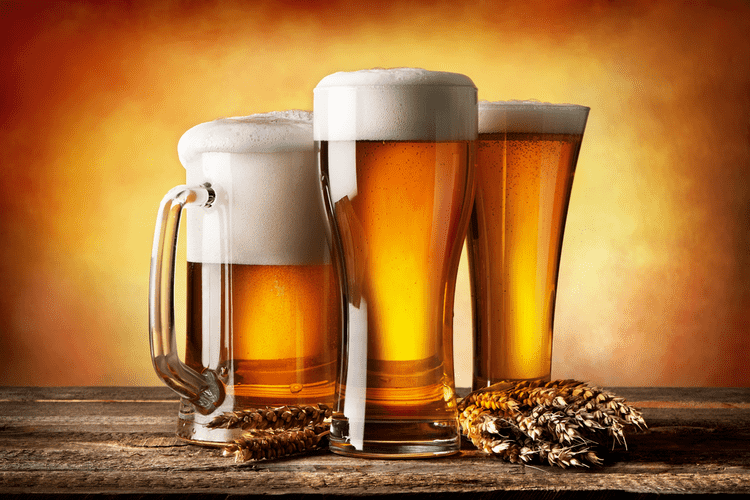What Does Alcohol Do to Your Body? Benefits & Risks
Whether it’s a little added stress relief or an attempt to add a little fun to your evenings, many of us are adding another cocktail, beer, or glass of wine at night. But even if you don’t notice the change, if you look at the science of what happens to your body when you stop drinking, let’s just say you might have second thoughts about leaning into this habit. Although one glass of wine a day can improve your heart health, the risks far outweigh the benefits. Many people notice a slight weight loss after 2 weeks of not drinking. Alcohol is calorie-dense, and cutting it out can lead to a reduction in calorie intake.

Alcohol: Balancing Risks and Benefits
If you drink regularly, alcohol can also prevent nutrients from feeding your immune system. It also reduces the white blood cells in your body, making it more difficult to fight off disease. In a month’s time, though, your immune system will have the ability to recover. Quitting alcohol can significantly reduce your risk of developing certain types of cancer. Alcohol consumption has been linked to various cancers, including breast, liver, and mouth cancer.This reduction is substantial because alcohol can damage body tissues and influence hormone levels, both of which are contributing factors to cancer.
- Consuming alcohol in excess may cause other heart-related conditions, such as cardiomyopathy — damage to the heart muscle — or arrhythmias, which are abnormal heart rhythms.
- Another study from 2017 followed approximately 333,000 adults who drink alcohol and found that those who kept their drinking habits in moderation saw a 21% lower risk of mortality than participants who never drank.
- It directly influences the stomach, brain, heart, gallbladder, and liver.
What Happens to Your Body When You Stop Drinking Alcohol
The effects of alcohol can depend on the amount and type of alcohol consumed and also vary between individuals. However, the potential health benefits generally do not outweigh the negative effects. And not so long ago there was general consensus that drinking in moderation also came with health advantages, including a reduced risk of cardiovascular disease and diabetes.
Timeline: When You’ll Feel the Benefits After Cutting Back — From 24 Hours to 12 Months
- Alcohol can markedly affect worker productivity and absenteeism, family interactions, and school performance, and it can kill, directly or indirectly.
- A day and a half after quitting alcohol, withdrawal symptoms will intensify.
- Studies investigating the health effects of alcohol vary in their definitions of “low,” “moderate,” and “heavy” drinking.
- In type 2 diabetic patients, moderate wine but not beer or spirit drinkers presented a 22%–23% lower risk of MACE and overall mortality compared to abstainers, with no differences in microvascular complications.
- If your loved one is struggling with mental health concerns and frequent alcohol consumption, encouraging them to seek help for their addiction and mental health may significantly improve their life.
Although in lower amounts, beer also contains polyphenols and other bioactive compounds 130. This should be emphasized in the context of Sobriety a safe and moderate consumption considering the fact that worldwide approximately 45% of alcohol is consumed in the form of spirits, 34% in the form of beer, and only about 12% in the form of wine 7. However, the vast majority of studies elucidating the role of alcohol in cardiovascular and in the global burden of disease relies on epidemiological studies of associative nature which carry several limitations. This is why the cardiovascular benefits of low–moderate alcohol consumption are being questioned and perhaps might have been overestimated.
Cranberry and vodka can help get your creative juices flowing according to a study from Consciousness and Cognition. Researchers gave a group of men cranberry and vodka until their blood alcohol content reached 0.75 percent while the other group stayed sober and then asked them to complete https://ecosoberhouse.com/ a verbal puzzle while watching a movie. They solved the puzzle in 11.5 seconds while the teetotalers finished in 15.2 seconds. It’s hard to escape the message these days that every sip of wine, every swig of beer is bad for your health.

The journey of alcohol reduction unfolds in predictable stages, each bringing its is alcohol ever good for you own rewards and challenges. From the immediate benefits of better hydration and clearer thinking to the long-term advantages of optimized liver function and enhanced cognitive performance, every day of reduced alcohol consumption contributes to better health. Reframe, a neuroscience-based alcohol reduction app developed with hundreds of medical and mental health experts, has helped eliminate over 300,000 drinks per month by providing users with evidence-based tools and community support (Reframe). The app’s comprehensive approach combines daily science-backed lessons, craving management tools, and progress tracking to guide users through their alcohol reduction journey (Reframe App). Despite considerable research on the misuse of alcohol, no one has ever asked why it might have become universally adopted, although the conventional view assumes that its only benefit is hedonic.
